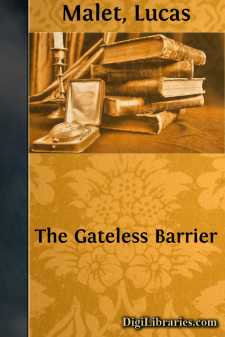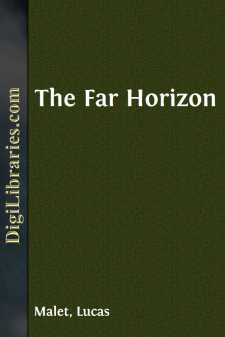Categories
- Antiques & Collectibles 13
- Architecture 36
- Art 48
- Bibles 22
- Biography & Autobiography 813
- Body, Mind & Spirit 142
- Business & Economics 28
- Children's Books 15
- Children's Fiction 12
- Computers 4
- Cooking 94
- Crafts & Hobbies 4
- Drama 346
- Education 46
- Family & Relationships 57
- Fiction 11828
- Games 19
- Gardening 17
- Health & Fitness 34
- History 1377
- House & Home 1
- Humor 147
- Juvenile Fiction 1873
- Juvenile Nonfiction 202
- Language Arts & Disciplines 88
- Law 16
- Literary Collections 686
- Literary Criticism 179
- Mathematics 13
- Medical 41
- Music 40
- Nature 179
- Non-Classifiable 1768
- Performing Arts 7
- Periodicals 1453
- Philosophy 64
- Photography 2
- Poetry 896
- Political Science 203
- Psychology 42
- Reference 154
- Religion 513
- Science 126
- Self-Help 84
- Social Science 81
- Sports & Recreation 34
- Study Aids 3
- Technology & Engineering 59
- Transportation 23
- Travel 463
- True Crime 29
The Gateless Barrier
by: Lucas Malet
Description:
Excerpt
Laurence leaned his arms upon the broad wooden hand-rail of the bulwarks. The water hissed away from the side. Immediately below it was laced by shifting patterns of white foam, and stained pale green, violet, and amber, by the light shining out through the rounds of the port-poles. Further away it showed blue black, but for a glistening on the hither side of the vast ridge and furrow. The smoke from the funnels streamed afar, and was upturned by a following wind. The great ship swung in the trough, and then liftedâas a horse lifts at a fenceâwhile the seas slid away from under her keel. As she lifted, her masts raked the blue-black night sky, and the stars danced in the rigging.
This was the first time since his marriage, nearly two years before, that Laurence found himself alone and altogether his own master. His marriage was a notable successâevery one said so, and he himself had never doubted the fact so far. Yet this solitary voyage, this temporary return to bachelorhood, possessed compensations. He reproached himself, as in duty bound, for being sensible of those compensations. He excused himself to himself. He gave reasons. Doubtless his present sense of freedom and content took its rise not in his enforced absence from Virginia, from her bright continuous talk, her innumerable and perfectly constructed dresses, her perpetual and skilful activities; but in his escape from the highly artificial and materialised society in which she lived and moved and had her being. Laurence had certainly no ostensible cause of complaint against that society. Its members had recited his verses, given a charming performance of his little comedyâin the interests of a deserving charityâquoted his opinions on literature and politics, and waxed enthusiastic over his strokes at golf and his style at rackets and polo. He had, in fact, been the spoilt child of two New York winters and two Newport summers. No Englishman, he was repeatedly assured, had ever been so popular among the "smart set" of the great republic. It had petted and feted him, and finally given him one of its fairest daughters to wife. And for all this Laurence Rivers was sincerely grateful. His vanity was most agreeably flattered. His natural love both of pleasing and of pleasure was well satisfied. Yetâsuch is the perversity of human natureâthe very completeness of his success tended to lessen the worth of it. He even questioned, at moments, whether that success did not offer the measure of surrounding immaturity of taste and judgment, rather than of the greatness of his personal talent and merit. He was haunted by the conviction that he had never yet given his best, the highest and strongest of his nature, either in thought, or art, or adventure, or evenâperhapsâhe feared itâin love. The demand had been for a thoroughly presentable and immediately marketable article; and the Best is usually far from marketable, often but doubtfully presentable either. It followed that Laurence had, almost of necessity, kept the best of himself to himselfâkept it to himself so effectually that he had come uncommonly near forgetting its existence altogether, and letting it perish for lack of air and exercise.
Now leaning his arms upon the hand-rail of the bulwarks, while the stars danced in the rigging, and the great ship ploughed her way eastward across the mighty ridge and furrow of the Atlantic, gratified vanity ceased to obtain in him. His thoughts travelled back to periods of his career at once more obscure and more ambitiousâto the few vital raptures, the few fine failures, the few illuminating aspirations which he had known. The bottom dropped out of the social side of things, so to speak....





